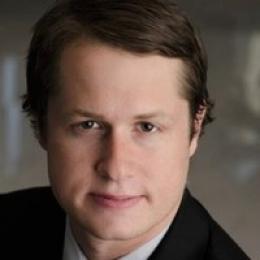The ACC Australia In-house Lawyer Awards acknowledge excellence in the provision of legal services, as well as the contributions to the legal profession made by in-house lawyers working in government and business legal departments.
The awards are given in six categories — Corporate Lawyer of the Year; Government Lawyer of the Year; Legal Team of the Year – Small; Legal Team of the Year – Large; Young Lawyer Achiever of the Year; and Excellence in Corporate Social Responsibility — and are judged by in-house lawyers.
All individuals and team leaders with legal qualifications who are employed by corporate, government, or semi-government bodies — including statutory corporations in Australia — are welcome to enter the nomination process for the awards.
Corporate Lawyer of the Year; Legal Team of the Year — Large
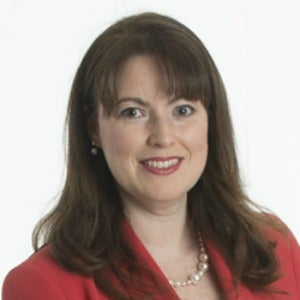
Carmel Mulhern
GROUP GENERAL COUNSEL AT TELSTRA CORPORATION LIMITED
ACC AUSTRALIA CORPORATE LAWYER OF THE YEAR AWARD
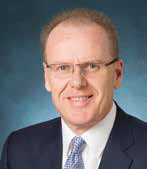
Simon Brookes
DEPUTY GROUP GENERAL COUNSEL AT TELSTRA
ACC AUSTRALIA LEGAL TEAM OF THE YEAR - LARGE AWARD
Ireland and farming. Technology and law. Different areas, but they have one thing in common: They are critical to who Carmel Mulhern is, professionally and personally.
Mulhern, group general counsel at Telstra Corporation Limited, was recognized in 2015 for two prestigious ACC Australia awards — Corporate Lawyer of the Year and the Legal Team of the Year for large legal departments.
“I feel so honoured to have received this and very humbled,” she says. “I think receiving such a prestigious award really reflects the outstanding work of my team, and it’s lovely to have that recognition.”
Hong Kong-based Simon Brookes, deputy group general counsel at Telstra, also says he is honoured to be part of a winning team.
“We are thrilled to win the ACC in-house team of the year award,” Brookes says. “Our focus is doing the best for our customers and shareholders, and meeting our professional responsibilities as a high-performing team. To get this additional recognition from our peers is a wonderful bonus.”
The daughter of parents who left Irish farm life in the 1960s for a more urbane Australian existence, Mulhern says her family always just wanted her to be happy, and she partly pursued becoming a lawyer to make them proud. She attended the University of Queensland in Brisbane where her natural abilities in English and public speaking prepared her well for her legal studies.
One of her first jobs was as a prison duty lawyer at the historical Brisbane Jail — known as “Boggo Road Gaol”— located in a suburb of Brisbane. It was a position she held while still at university, and as Mulhern reflected back, she praised her youthful naiveté. Because of it, she wasn’t intimidated by the grim surroundings, which allowed her to be open to picking up some important skills she still uses today.
“I certainly wasn’t fearful then,” she says. “I would walk across the exercise yard, sit inside an interview room, and give legal advice to prisoners, some who were in jail for things like murder. But I got to really know about people, and learn about family history as well.”
“These awards tie a nice bow around all these things that we are so passionate about.”
Carmel Mulhern
Going from a prison environment to Telstra, Australia’s leading telecommunications and information services company with offices worldwide, involved a path Mulhern says even she couldn’t have predicted. She adds it’s important to take opportunities as they come along, even if they don’t quite seem what you thought.
“If someone else is prepared to back you or give you an opportunity, then you should back yourself,” she says. “Don’t hold yourself back just because you might not feel you have the requisite experience. Take ownership of making your own opportunities proactively and don’t be afraid to approach people for advice.”
With the telecommunications field growing, and about 90 percent of Australian residents who own smartphones checking them as soon as they wake up, Mulhern says technology is embedded in every part of our lives. Some things that lawyers in this area need to constantly monitor — whether they are in Australia or any other part of the world — are privacy issues, cybersecurity, and how the impact of technology affects people since it’s been so widely integrated at an outstandingly fast pace.
“It’s not enough to just say you went to law school. You need to keep educating yourself, raising the bar, being agile so that you can see what is coming over the horizon. Which means keeping up-to-date not only on the law, but what is happening in technology,” Mulhern says.
It’s an industry that’s moving very quickly, she says, and anyone working for a telecommunications company, including lawyers, needs to make sure their customers are brilliantly connected.
She feels the awards highlight the Telstra team and what they strive toward in their professional roles. Besides the actual telecommunications work, the team endeavors to make a difference through volunteering and doing pro bono work, promoting flexibility, and advocating for diversity and well being, both internally and in the legal profession as a whole.
“These awards tie a nice bow around all these things that we are so passionate about,” she says.
And being recognized by fellow ACC members from across the globe is a truly gratifying thing too.
“I received a text from an in-house counsel friend in the United States, and she said she saw the team and me on the ACC website,” she said. “It makes you feel chuffed to be recognized.”
Legal Team of the Year — Small
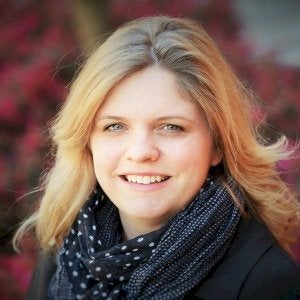
Kate Teixeira
CORPORATE COUNSEL ASIA PACIFIC FOR CUMMINS
ACC AUSTRALIA LEGAL TEAM OF THE YEAR - SMALL AWARD
What does Kate Teixeira, corporate counsel Asia Pacific for Cummins, love most about her job? Her team. And that’s why she’s excited that she and her team have been recognized with the ACC Australia Legal Team of the Year Award for small legal departments.
“The Cummins Asia Pacific legal team is made up of a great group of passionate legal professionals who provide the best quality and innovative legal services to support optimal business outcomes for Cummins,” Teixeira says. “This award goes some way in recognizing their contribution.”
The Cummins Asia Pacific legal team, which has its head office in Melbourne, consists of four lawyers, one legal intern, and one legal administrator. The team supports all Cummins businesses across the Asia Pacific region. Cummins — which manufactures and distributes diesel engines, power generators, and components — has about 55,000 employees across 190 countries worldwide.
A native of rural Tasmania, Teixeira completed two bachelor’s degrees in law and psychology at the University of Tasmania. After that, she pursued her post grad education at two universities — the University of Tasmania in Hobart and Monash University in Melbourne — studying legal practice, and health safety and environmental law.
“Cummins focuses on diversity and corporate responsibility, and that has a made a significant difference to the lives of people and the environments in which we operate.”
Kate Teixeira
“I’ve always had a strong sense of justice, fairness, and equality for all, so entering the law was an obvious fit,” she says.
Teixeira joined Cummins in 2009, a time when she was looking for her next in-house challenge. She was simultaneously attracted by the variety of work, the challenges of an Asia Pacific role, and by Cummins’ core values.
Today, in addition to her current role, she also sits on the Cummins regional leadership team, and is a director and company secretary of multiple boards of regional Cummins entities.
“Working in a small regional office of a large multinational company gives me the best of both worlds,” Teixeira says. “The legal team at Cummins are highly engaged with, and very well respected by our business colleagues, and this was obvious from the outset.”
One of the main things Teixeira’s team is focusing on now is compliance across the region and continuing to grow the Cummins footprint through mergers and acquisitions.
“Cummins focuses on diversity and corporate responsibility, and that has made a significant difference to the lives of people and the environments in which we operate,” Teixeira says.
Looking back on her own path, Teixeira reflects that there’s no point in rushing your career along, and it’s worth it to take the time to figure out what you want from the legal profession, and what you can give back in return.
Also, ignore everything you learned in university.
“True learning happens in the real world… so always grab opportunities to learn new things and understand different perspectives,” she says. “Remember you can have it all. Just not all at once!”
Excellence in Corporate Social Responsibility – AECOM
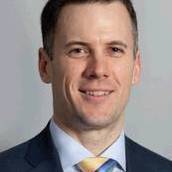
Gordon Kenwright
CHIEF COUNSEL, AECOM - AUSTRALIA/NEW ZEALAND
EXCELLENCE IN CORPORATE SOCIAL RESPONSIBILITY AWARD
In early 2013, Pollinate was a startup that was trying to improve the lives of India’s urban poor by providing solar lights and safe portable stoves. There was an opportunity for Australian professionals to join the company on the ground in India, but the startup needed to get its legal documents in order.
They approached AECOM, the world’s top engineering firm by revenue, to help them. AECOM’s Australia/New Zealand legal team, which was led by Gordon Kenwright, helped Pollinate create a reusable commercial contract. “Because of their understanding of our position they were also able to upskill our capabilities in legal negotiation,” says Alexie Seller, the national manager for Pollinate. “And because of their diligence and foresight in that initial partnership building phase, we have now replicated that agreement with AECOM three more times and been able to use the same conditions to partner with three other major global companies.”
Helping build better communities is a core principle of AECOM. In fact, the company’s motto is “built to deliver a better world.” Ten AECOM employees have had the chance to participate in Pollinate’s program in India, which has directly improved the lives of over 10,000 families who now use solar-powered lights instead of kerosene to light up their homes.
Engineers Without Borders Australia (EWB) is another small nonprofit that relies on the legal expertise of AECOM for its contracting arrangements. The organization supports learning and knowledge-sharing on issues including sustainable development, appropriate technology, and poverty. Michelle Cheah, who is the corporate partnerships manager, says that EWB trusts AECOM’s in-house legal team with its mission. “The in-house legal team’s willingness to discuss elements of the partnership agreement in person with EWB was very much appreciated and enabled us to shortcut subsequent rounds of time-consuming mark-ups,” she says.
“The in-house legal team’s willingness to discuss elements of the partnership agreement in person with EWB was very much appreciated and enabled us to shortcut subsequent rounds of time-consuming mark-ups.”
Michelle Cheah
Kenwright is particularly proud of AECOM’s partnership with indigenous communities. His legal department is preparing documents which support AECOM’s Reconciliation Action Plan (RAP). The RAP is a statement of intent and purpose to work with these local indigenous communities. “It’s really important to remember the traditional owners of this land,” he says. AECOM also offers opportunities to local indigenous engineering students to work with the company. “AECOM recognizes the importance of doing more than simply acknowledging local indigenous rights. Our strategy has been to go beyond making general statements of intent, to implementing initiatives that are going to have a lasting positive impact on local indigenous communities,” he says.
Kenwright says that his legal team doesn’t treat corporate social responsibility work any differently than fee-generating projects. “It’s not just an after-hours or in your spare time exercise,” he says. “It’s part of our commitment to building stronger ties with the community.” The corporate social responsibility work that they do builds a core strategic advantage in the marketplace where reputations are founded on working closely with communities. According to Kenwright, other companies should have corporate social responsibility as a cornerstone of their psyche and culture.
Young Lawyer Achiever of the Year
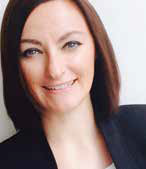
Lauren Miller
ASSISTANT GENERAL COUNSEL, CARNIVAL AUSTRALIA
YOUNG LAWYER ACHIEVER OF THE YEAR AWARD
In 2006, Lauren Miller, who is now Carnival Australia’s assistant general counsel, effectively banned herself from taking cruises. She had just started working at Carnival Australia and was only in her second year of law school. During that time, P&O Cruises Australia, one of Carnival Australia’s seven cruise brands, was concerned by the risk of excessive behavior onboard during so called “schoolies cruises” — basically Summer Break cruises for 18-year-old Australians after they finish high school.
Schoolies are a rite of passage for many young Australians, and they celebrate like young people do everywhere. But the risk of excessive behavior on cruise ships is that land based resources like major hospitals and law enforcement can be far away. The company was also in the process of transforming the damaged reputation of cruising by upgrading the product to attract a wider customer base. It had implemented a range of measures to deal with excessive behavior including providing extra onboard security, installing hundreds of CCTV cameras, strictly applying responsible service of alcohol policies, and limiting the number of passengers under 21 years of age. The changes were influential in improving passenger safety and security, but the company subsequently had to address complaints of age discrimination.
Unwilling to dilute the company’s transformation policies, Miller’s team decided to approach the Australian Human Rights Commission to seek an exemption from the country’s Age Discrimination Act. The application was initially rejected and Miller remembers talking to Carnival Australia’s CEO Ann Sherry who decided it was vital for the policies to be allowed to work. Sherry was supportive of Miller taking up the challenge.
The Human Rights Commission was invited onboard to get a feel for the P&O shipboard environment, and to see why the company’s age limiting policies were in the best interests of passengers and crew, given the nature of ocean voyages as distinct from land based settings. Ultimately an understanding was reached based on some refinement of Carnival Australia’s initial approach. It was the first-ever age discrimination exemption of its kind granted in Australia to a corporate entity — even though it meant Miller wasn’t old enough to cruise on her own company’s ships.
Miller didn’t fully appreciate the legal significance of gaining the exemption at the time. “It was much more about the commitment we had made in an operational sense about safety, the responsible service of alcohol, and applying zero tolerance to excessive behavior,” she says.
Despite making legal history, Miller wasn’t always focused on a law career. She wanted to become an artist and attended an orientation at a local university with a friend. She gathered all of the materials on art while her friend picked up material on law. In a chance mix up, they confused their bags, and Miller went home with the law materials.
After browsing through the information, she thought law sounded interesting. Up to that point, her only notion of a lawyer was a criminal defense lawyer and she couldn’t imagine joining that practice. In particular, she was interested in human rights work — something that she has continued to do throughout law school and her later career.
Miller did an internship with the Commonwealth Human Rights Initiative in Ghana that focused on child trafficking. Throughout, Carnival Australia has supported her human rights work and she recently returned from Nepal where she helped rural communities establish water sanitation facilities.
“I think for those of us who were there at that time and came in in the years afterwards, we will never lose that feeling of why it’s so necessary for us to continue to prioritize and adhere to those policies and to make that commitment to safety and security a very real thing.”
Lauren Miller
She recently completed her Master of Law in International Development from the University of Sydney — to understand the development side of things — and she says she’s gained a valuable sense of perspective from her work. “You see people who are struggling so much just to meet basic needs and they still are happy and generous and giving. We have all of the privileges here that we take for granted and it’s sometimes easy to lose sight of what real challenges and real problems look like, and I think we’re just so lucky [in Australia],” Miller explains.
Her sense of perspective and scope keeps her grounded when incidents occur. She joined Carnival Australia at a critical time in 2006, during the inquest into the death of a passenger onboard a P&O Cruise ship. The death received widespread media coverage in Australia and was the catalyst for Carnival Australia’s moves to transform its product and operating procedures, changes that led to industry-wide transformation in Australia.
Miller hasn’t forgotten the deep sense of tragedy that pervaded the company during the inquest into Brimble’s death. “I think for those of us who were there at that time and came in in the years afterwards, we will never lose that feeling of why it’s so necessary for us to continue to prioritize and adhere to those policies, and to make that commitment to safety and security a very real thing,” she says.
Part of the transformation also involved the development of reporting procedures to give people confidence that arrangements are in place for the reporting of serious incidents that can happen in international waters. In popular imagination, international waters have an image of lawlessness but, in Miller’s view, it’s actually the opposite of a legal vacuum. “It’s not that no law applies. It’s that so many different laws can apply and that’s what can create confusion,” she says.
Miller coordinated with the Australian Federal Police, Australian State police forces, and the regional body for Chiefs of Police in the South Pacific to design a protocol to be followed in the event of alleged crimes at sea. “Serious crime on cruise ships is comparatively rare and the protocol we have developed is not intended to displace international law, obviously we can’t do that, but it was intended to at least give a very practical guide so that any kind of crime could be investigated quickly,” Miller explains.
The protocol states that a ship will report the crime to the receiving jurisdiction, which is the next port of call. If a ship leaves Vanuatu and it’s on the way to Fiji when a crime occurs, then it will be reported to Fijian authorities. In addition, Carnival Australia routinely reports to the Australian Federal Police and to the New South Wales Police Marine Area Command in Sydney or the Queensland Police Marine Area Command in Brisbane, Australia’s nearest equivalent to US Coast Guard functions. The document is owned and managed by the respective police forces and Carnival Australia has given its blessing for it to be shared industry-wide.
Miller has been busy since she joined Carnival Australia. “I can honestly say that in nine years I’ve never had a day that’s the same,” she says. Her favorite part is working with the broader business units — fleet operations engineers, creative marketing executives, and event planners — that expose her to a range of fields every day.


